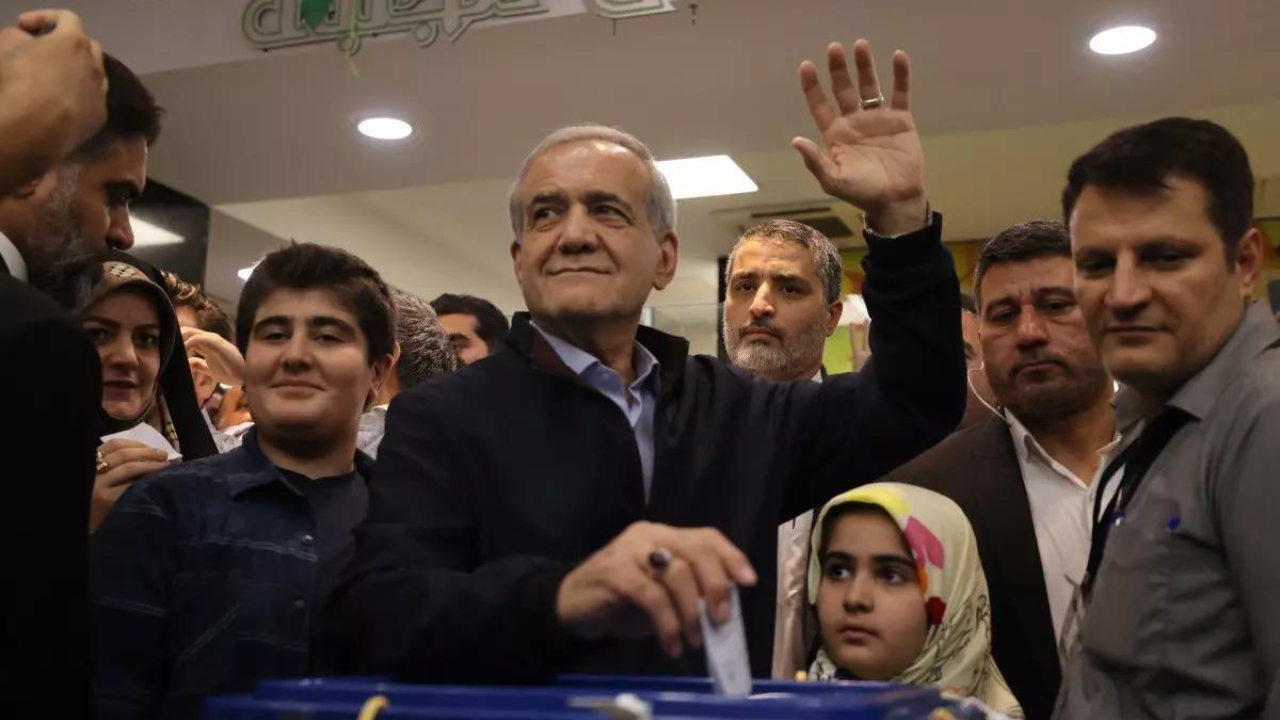Masoud Pezeshkian, a reformist candidate and heart surgeon, emerged victorious in Iran’s runoff presidential election on Saturday. He secured the win by pledging to engage with the West and relax the enforcement of the country’s compulsory headscarf law, following a period of sanctions and protests that have strained the Islamic Republic. Pezeshkian’s opponent, hard-liner Saeed Jalili, was defeated in the electoral contest.
Pezeshkian secured over 17 million votes, while Jalili obtained more than 13 million votes in an election where approximately 30 million votes were cast, according to Iran’s election authority. The voter turnout for this election, which was at historic low level, stood at 49.8 percent.
Throughout his campaign, Pezeshkian refrained from promising any drastic changes to Iran’s Shiite theocracy. He has consistently recognized Supreme Leader Ayatollah Ali Khamenei as the ultimate authority in all matters concerning the state.
However, Pezeshkian’s modest objectives are likely to face challenges from an Iranian government that remains largely controlled by hard-liners, the ongoing Israel-Hamas conflict in the Gaza Strip, and Western concerns about Tehran’s enrichment of uranium to near-weapons-grade levels.
In the early hours of the day, Pezeshkian’s supporters, took to the streets in Tehran and other urban areas as his advantage over Jalili, a conservative former nuclear negotiator, continued to grow.
The initial round of polling on June 28 experienced the poorest participation since the 1979 Islamic Revolution in the history of the Islamic Republic. The leadership in Iran has consistently stressed that the voter turnout is an indication of backing for the nation’s Shiite theocracy, which has been under pressure following years of economic sanctions, widespread protests, and severe repression of all dissent.
According to the vote count provided by the authorities, Pezeshkian secured 16.3 million votes, while Jalili received 13.5 million votes in Friday’s election.
The elections came after President Ebrahim Raisi, who was widely regarded as a close confidant and mentee of Khamenei, died in a helicopter accident in May. Many believed that Raisi was being groomed as a possible successor to the supreme leader position.
Raisi’s legacy was however, marred by his participation in the 1988 mass executions in Iran. Furthermore, he played a significant role in the violent suppression of protests that erupted following the death of Mahsa Amini in 2022 who had been arrested by the authorities for allegedly wearing her mandatory hijab improperly.
Pezeshkian secured over 17 million votes, while Jalili obtained more than 13 million votes in an election where approximately 30 million votes were cast, according to Iran’s election authority. The voter turnout for this election, which was at historic low level, stood at 49.8 percent.
Throughout his campaign, Pezeshkian refrained from promising any drastic changes to Iran’s Shiite theocracy. He has consistently recognized Supreme Leader Ayatollah Ali Khamenei as the ultimate authority in all matters concerning the state.
However, Pezeshkian’s modest objectives are likely to face challenges from an Iranian government that remains largely controlled by hard-liners, the ongoing Israel-Hamas conflict in the Gaza Strip, and Western concerns about Tehran’s enrichment of uranium to near-weapons-grade levels.
In the early hours of the day, Pezeshkian’s supporters, took to the streets in Tehran and other urban areas as his advantage over Jalili, a conservative former nuclear negotiator, continued to grow.
The initial round of polling on June 28 experienced the poorest participation since the 1979 Islamic Revolution in the history of the Islamic Republic. The leadership in Iran has consistently stressed that the voter turnout is an indication of backing for the nation’s Shiite theocracy, which has been under pressure following years of economic sanctions, widespread protests, and severe repression of all dissent.
According to the vote count provided by the authorities, Pezeshkian secured 16.3 million votes, while Jalili received 13.5 million votes in Friday’s election.
The elections came after President Ebrahim Raisi, who was widely regarded as a close confidant and mentee of Khamenei, died in a helicopter accident in May. Many believed that Raisi was being groomed as a possible successor to the supreme leader position.
Raisi’s legacy was however, marred by his participation in the 1988 mass executions in Iran. Furthermore, he played a significant role in the violent suppression of protests that erupted following the death of Mahsa Amini in 2022 who had been arrested by the authorities for allegedly wearing her mandatory hijab improperly.
